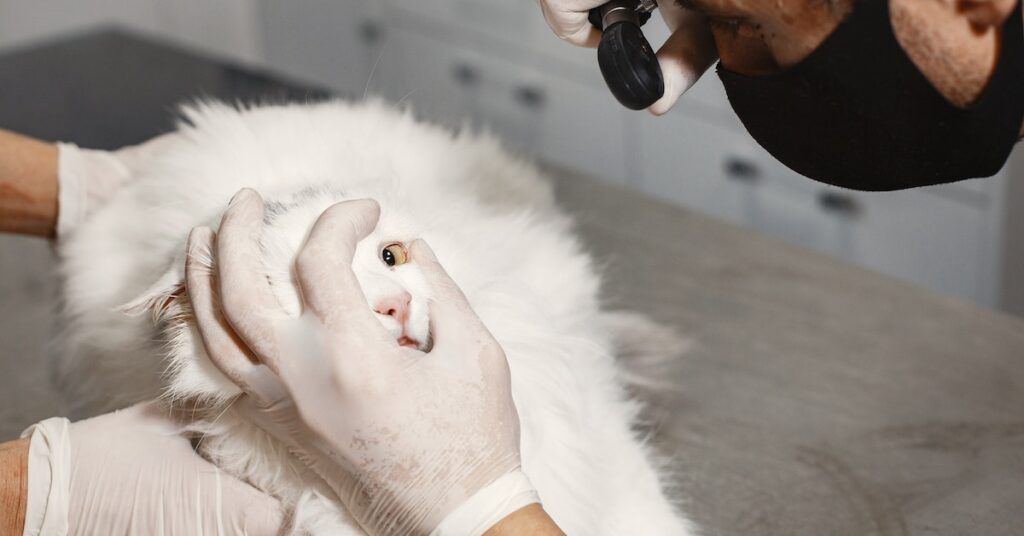Your cat should visit the vet once or twice a year, more frequently during kittenhood. It should be examined and given vaccinations, as well as undergo an annual examination. You can also schedule an appointment for free if you have any questions about how often to take your cat to the vet. There are many reasons why you should visit a veterinarian and these include:
Once a year
It’s important to take your cat to the vet on a yearly basis to prevent disease. In addition to examining your cat’s teeth, annual checkups will also provide a thorough physical exam. These visits will also help your vet recommend preventative care. For example, a teeth cleaning can help prevent bad breath and keep your cat’s gums healthy. Having your cat’s teeth cleaned can also prevent chewing problems and pain. Additionally, you can get your cat vaccinated for rabies and other diseases.
It’s important to schedule your cat’s checkup in advance. To avoid forgetting, schedule an appointment a month or two ahead of time. Write down your appointment in a calendar or phone so that you can easily remember when it’s time to take your cat to the vet. Many vet offices have a service that will send you reminders via email or text. A reminder is a great way to make sure you don’t miss an appointment.
Older cats need more frequent checkups. Ideally, you should take your senior cat to the vet every six months. It’s important for older cats to visit the vet more often than younger cats. They’re more likely to have more serious medical conditions, and will need more frequent vet visits. To ensure your cat’s health, pay attention to your cat’s behavior and overall condition. If you notice anything unusual, contact your vet.
While once a year is the general rule for veterinary visits, your cat may need more frequent visits. If you find your cat is sick or develops other problems, it’s better to take it sooner rather than later. Regular visits to the vet can help your cat live longer and healthier. There are several important reasons to visit your veterinarian. However, the best time to schedule these visits is according to your cat’s age, lifestyle, and other health conditions.
Read more about 163 Interesting Facts About Cats That Every Cat Lover Should Know
More often during kittenhood
When you bring your kitten home, you’ll be taking it to the vet more often than you probably think. Typically, a cat should see the vet about every three to four weeks until it reaches 16 weeks of age. These visits are essential for the first round of vaccinations and parasite prevention. The veterinarian will also check the cat’s paws, nose, ears, heart, and lungs. You may also be asked to give your cat a stool sample to check for infections.
A visit to the veterinarian is necessary to ensure your cat is healthy and strong enough to grow into a fully grown cat. Regular visits will also help the veterinarian determine how to best care for your kitten. You can ask questions about the best cat food, litter box training, environmental enrichment, and multi-pet issues. Your veterinarian can also recommend certain preventative treatments such as heartworm prevention and flea and tick prevention. You can also have your kitten’s vaccinations renewed annually. Your cat’s vaccinations will protect your pet from disease and prevent future infections.
Young adult cats only need an annual visit to the vet. They’re generally healthy, but regular visits allow the veterinarian to compare values year over year and diagnose conditions early. Regular visits also enable the veterinarian to monitor your cat’s condition and prescribe medication as necessary. You and your vet will also discuss any symptoms your cat is experiencing. Your vet will also ask you about the lifestyle of your cat, since outdoor cats are more likely to be exposed to diseases and hazards.
Your kitten’s vaccination schedule is very important for their health. Rabies vaccinations should start around three months old and are repeated every three years. Some vets even perform the procedure on kittens as young as eight weeks old. Your veterinarian will discuss how to prevent fleas and ticks and will determine whether you should spay your cat at an early age. Your veterinarian will also recommend the best time to neuter your cat.
Read more about 9 Best Blankets for Cats and Dogs, You Must Try Some
Vaccinations
The vaccination of your cat is one of the best ways to protect it against certain diseases. While most cats do not experience any negative side effects, some vaccinations may cause a temporary loss of appetite. This usually goes away after 24 hours. There is also the possibility of an allergic reaction to the vaccines. If your cat experiences these side effects, they should not be alarming. Your veterinarian will explain these risks to you. Your cat will usually recover completely after these vaccinations.
Vaccines work by stimulating your cat’s immune system to respond to a specific microorganism. Because the vaccine mimics the symptoms of the real disease, it primes the immune system to fight off future infections. The resulting immunity makes the vaccinated animal better equipped to protect itself. Not only does this help prevent future infections, but it also makes recovery from current infections easier. Therefore, it is important to keep your cat vaccinated for a lifetime.
Several of these diseases can be life-threatening. Vaccinations for cats protect against diseases like Feline Leukemia, Feline Immunodeficiency Virus, and Cat Infectious Peritonitis. These diseases can result in joint pain, mouth ulcers, and fever. If your cat goes outside frequently, she is at risk of contracting these diseases. Rabies is another very serious viral infection that can cause death in your cat.
Adult cats should have core vaccinations every three to four years. Depending on the vaccine, booster vaccinations may be necessary. Vaccinations are important for your cat’s health. Remember to keep the vaccination schedule with your veterinarian to ensure your kitten’s safety. Once you know your kitten’s vaccination schedule, you can begin preparing for the big day. The sooner your kitten begins vaccinations, the better. When the time comes, you can consult your veterinarian to determine what you should get your cat.
Read more about 5 Ways to Make Your Cat Happy
Annual examinations
Cats need annual examinations to make sure that they are in good health. Many health problems in cats are difficult to detect in their early stages. Annual examinations at the vet’s office can help diagnose issues that may have gone undetected. However, one factor that can prevent the onset of problems is your cat’s diet. Good quality food is essential for your feline friend’s health and well-being. Wellness cat food is a great choice for a healthy diet for your cat.
A veterinarian will also examine the cat’s eyes and ears, as well as its nose, mouth, and nose. They will also check for signs of periodontal disease and a hanging tongue. Some veterinarians use an ophthalmoscope to examine your cat’s eyes and detect disease early. In some cases, it may be necessary to perform a rectal exam, which is more common in dogs than cats. It can detect diseases of the anal sacs.
A veterinarian can also perform a blood chemistry panel on your pet. These tests measure different chemicals and enzymes in the blood. They can also detect specific substances in the cat’s urine. These tests are essential to diagnose certain diseases. You should take your pet for an annual examination every year if your pet has been indoors for more than a few years. And don’t forget to take your cat to the vet for a complete blood count. This will show the types of cells in your pet’s body. It can also detect infections and anemia.
A vet can also perform wellness exams on your cat, establishing a baseline for its overall health. A wellness exam can be combined with an annual examination, provided that there are no hygiene issues. You can even bring a few treats to the veterinarian’s clinic to keep your cat happy during the waiting period. While your cat is waiting, you should make sure that it is comfortable and contented. If your cat has an illness, annual examinations are an important step in treating it.
Read more about Pet Assistance for Low-Income Families
Spaying or neutering
While there are many benefits to spaying and neutering a cat at the vet, it is important to remember that the longer you wait, the higher the risk that the surgery won’t work. A cat can’t be sex-free until she reaches three to six months old. If she does not remain fixed, she could suffer from mammary cancer or pyometra, a dangerous collection of pus inside the female reproductive organ.
The procedure usually lasts about an hour and the cat should be relatively comfortable. It may be ready to go home that same day, or it could be hospitalized overnight for observation. Depending on the procedure, a neutered cat might need special aftercare. The vet may recommend a week of isolation after the surgery so that the abdominal incisions don’t herniate. The procedure is usually safe for both your cat and the veterinarian.
Having a cat spayed or neutered at the vet also helps control the number of unwanted litters and prevents overpopulation in animal shelters. According to the American Society for the Prevention of Cruelty to Animals, about 3.4 million cats enter shelters each year. Spaying or neutering a cat can help keep the pet population under control, and it will ensure a cat’s long and healthy life.
Although there are many benefits to spaying a cat at the vet, the biggest one is that it helps prevent breast and uterine cancer. These diseases can be fatal to your cat, so it’s important to have the procedure done to protect your beloved pet. Spaying your cat will ensure that your cat will be happier and more contented in its home. If you’re worried about your cat breeding, spaying him will prevent him from fighting with another cat.
Read more about Symptoms and Treatments For Cat Yeast Infections








